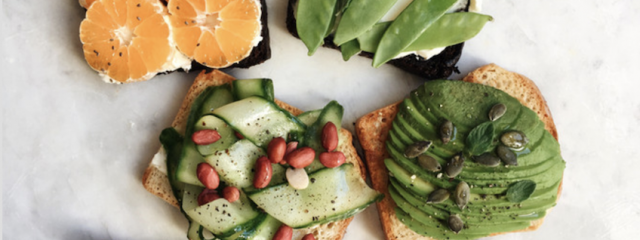Microbiome On Your Mind?

By Chloe Adam
Registered Nutritional Therapist
Do you ever experience feelings of low mood, anxiety or depression?
Find that you feel sluggish with a lack of motivation to do anything?
Do you struggle to keep your skin clear, or keep your weight at a healthy level?
Are you prone to colds and infections?
Did you know that the status of your gut isn’t only important for your digestive system and minimising gastro-intestinal conditions, but it actually plays a large role in managing your mood, supporting your skin, immunity and energy levels!
Let’s take a deep dive into the role of the microbiome and how we can support it to subsequently help our body and our mind.
What is your microbiome?
So, where is your microbiome and what actually is it?
We have multiple microbiomes from our gastrointestinal (gut) microbiome to our lungs, skin and vaginal microbiomes. Each one being an internal ecosystem of diverse microorganisms and microbes.
The focus here is on the gut microbiome, which is made up of trillions of bacteria, together weighing around 2 to 6 pounds. In fact, your microbiome consists of more bacterial, viral and fungal strains than there are people in the world! What’s more, each person’s microbiome is unique to them, just like your fingerprints.
The variety and abundance of certain bacterial strains is what determines whether our microbiome is deemed balanced or ‘healthy’. When we have a higher abundance of the more ‘beneficial’ bacteria, and a reduced number of the more ‘harmful’ bacteria, we define this as a well-balanced microbiome or homeostasis. However, when that balances shifts towards a greater abundance of ‘harmful’ bacteria then this is classed as an imbalanced microbiome, or ‘dysbiosis’.
Our gut microbiome develops throughout our lifetime and can pass through these different homeostatic or dysbiotic states. How is this possible? The microbiome is influenced by a number of different factors including dietary and lifestyle factors. So the question is, why do we want to keep a well-balanced microbiome?
Your microbiome consists of more bacterial, viral and fungal strains than there are people in the world!
What does the microbiome do?
Our microbiome is responsible for a whole host of fundamental functions, ranging from immunity, energy and autoimmunity to skin health, weight and mood.
Immunity
The microbiome is our first line of defence, and therefore plays an essential part in immunity. If the microbiome is not well balanced then this can allow bacteria, pathogens and toxins to pass into your bloodstream and may subsequently lead to infections and a poorer immune system.
Nutrient Absorption, Energy & Skin Health
The microbiome and gut integrity also determine how well you can absorb the nutrients from the foods that you eat. Without a healthy microbiome, then it can reduce the ability to be able to break down and absorb the vitamins and minerals in your foods. So, you might have the most nourishing diet in the world, but without a heathy microbiome, you might not be fully absorbing those nutrients.
Why do we need these nutrients? The nutrients from the foods we eat are fundamental to many workings in the body, including our immune system. In addition, they are essential co- factors in our energy cycle, which means that we can be left feeling fatigued if our
absorption rate is low. This can also impact other areas of our health, such as our skin health. Without the ability to absorb the correct nutrients, this can result in dry and aging skin as well as skin conditions such as eczema, psoriasis and rosacea.
Weight
Our microbiome has also been shown to play a large role in our weight. Research suggests that certain bacterial strains are linked to being a healthy weight, while other bacterial strains are related to individuals who are overweight. Therefore, maintaining a healthy gut can be influential on your weight and help support weight loss.

Inflammation
The microbiome not only influences our energy, immunity, skin health and nutrient absorption but it also plays a role in managing or exacerbating inflammation. Inflammation can occur when we have an imbalance of bacteria in our gut. Inflammation can present
itself in the body in a number of ways, anything from rosacea or acne to a flare up for those with autoimmune disease such as rheumatoid arthritis or ulcerative colitis.
Food allergies and intolerances
Gut health may also be in part responsible for any food allergies or food intolerances that you may have. If the gut lining is damaged, and lets through food particles and bacteria that should not pass through into the bloodstream, then this can lead to an over-active immune response which can show up in daily life as a food allergy or food intolerance.
Digestive health
No surprise here, an imbalance to our gut microbiome can lead to a number of uncomfortable and distressing digestive problems. This can range from bloating and abdominal pain to diarrhoea or constipation.
Mood
Finally, the microbiome can be an essential factor for neurological health. Up to 80% of our neurotransmitters (brain chemicals) are produced in the microbiome. This includes our happy neurotransmitter, serotonin, and our calming neurotransmitter, GABA. If we have an imbalanced, or dysbiotic, microbiome this can inhibit the production of the neurotransmitters, which may result in feelings of low mood, depression and anxiety.

What disrupts our microbiome?
So, what is causing all this disruption to our microbiomes? The main 4 influential factors are as below:
- Antibiotics
- High sugar diet
- Stress
- Smoking
Antibiotics can have a huge impact on our microbiome. Antibiotics work by wiping out the bacteria in our gut. While this destroys the more harmful bacteria, this also destroys the beneficial bacteria. We then need to re-populate this with the right diet and lifestyle choices in order to help the beneficial bacteria flourish.
Unfortunately, there are other factors which can cause the more harmful bacteria to overgrow. A high sugar and low fibre diet, smoking and high stress have each been shown to impact the microbiome and lead to an increase the more harmful bacterial strains.
How to support your microbiome
What can we do to support the microbiome? Luckily, there is lots we can do to support our gut health. Here are just a few of the things we can do to help our microbes flourish!
- Fermented foods: Fermented foods like sourdough, kimchi, kombucha and kefir contain live beneficial bacterial strains. This helps to keep a harmonious balance of bacteria and crowd out the more harmful bacteria.
- Vegetable variety & polyphenols: These are plant compounds that help to feed the good bacteria, helping them to flourish. The more the merrier here! Think lots of variety and the colours of the rainbow.
- Stress management: We have seen how stress can be detrimental to our microbiome, therefore including daily stress management practices such as meditation can be really supportive of our gut health.
- Fibre: Fibre is the main food source for our bacteria. So making sure you get a good daily dose of fibre helps to keep that bacterial balance. These foods include fruit and vegetables as well as nuts and seeds and wholegrains.
Summary
Our microbiomes are developing and changing daily throughout our lives, and act as our own personal blueprint to health. Our gut plays a key role in many different bodily functions, including our mood. There are multiple different factors that can influence our microbiome status from antibiotics and high sugar diets, to stress and smoking, as well as a lack of the beneficial nutrients. We can help to support our microbiome by adding in fermented foods and brightly coloured fruit and vegetables.
If you suffer with gastrointestinal symptoms, skin conditions, weight struggles or low mood and anxiety, then it’s recommend to consider getting support from a nutritional therapist to help you to understand the root cause of your symptoms, and help and support you in addressing them.
BOOK A CALL WITH OUR FRIENDLY ASSESSMENT TEAM
Please check Our Fees page before booking a call.
Choose a day and time that works for you.
Tell us what is going on for you.
Let us explain how we can help.
ONLINE NUTRITIONIST COACHING
Learn more about Health and Wellbeing
Here are some articles and blogs about health and wellbeing



